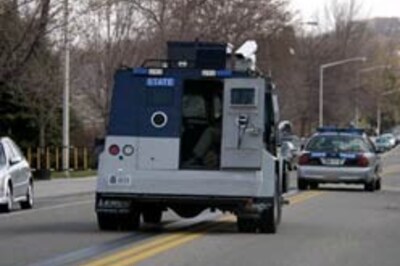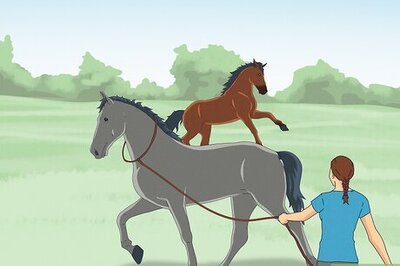
views
Singapore: Asian stocks dropped 3 to 4 percent on Friday after panic triggered the worst sell-off on Wall Street since the global financial crisis, sending investors slashing positions and scrambling for cash and government bonds.
Complicating matters was that Japan and Switzerland have intervened this week to weaken their currencies, which were considered the safest in the developed world. That has caused some safety-seeking investors to look elsewhere when financial market volatility is spiking.
So far though, institutional equity investors in Asia were not liquidating their positions, instead continuing to cut riskier bets and protect their portfolios.
"What you're seeing is a shakeout of all the money that was put to work in the hope that 2011 turns out like last year, where you saw a nice bounce around the same time," said a Hong Kong-based multi-strategy hedge fund manager.
"That could still happen but with the losses that people have already taken this year, looks like no wants to take the risk. It's about preserving capital now."
Japan's Nikkei share average fell 3.6 percent. N225 to the lowest since the week following the country's massive earthquake and tsunami in March.
The benchmark MSCI index of Asia Pacific stocks outside Japan was down 1.8 percent. MIAPJ0000PUS, with the sharpest decline in the commodity-related sector. The index is on course for the biggest weekly drop since May 2010, when the European debt crisis was flaring up.
Europe, where overloaded national balance sheets have bedeviled politicians struggling to grasp the implications, is currently in the eye of the storm.
Traders went warily back to the yen. The dollar was down 0.4 percent to 78.83 yen, a day after Japan reportedly spent a record 4 trillion yen ($50.6 billion) to weaken its currency.
US 10-year Treasury futures ticked up 6/32 to 128-6/32, just below the Thursday high of 128-12/32, which was the highest since December 2008. The cash yield was at 2.42 percent, a basis point higher than late New York on Thursday when the 10-year yield hit the lowest since October 2010.
The yield has sank 37 basis points so far in August, as a wall of worry sends investors to the most liquid bond market in the world.
Commodity markets were eerily quiet.
US crude for September delivery was roughly unchanged at $86.57 a barrel after falling as much as 6 percent on Thursday and closing at the lowest since February 2011.
In an ominous sign, gold prices were soft despite the spiraling fears hurting risky markets. Investors were having to sell gold positions to cover losses elsewhere in their portfolios.
Spot gold prices eased $3.71 an ounce to $1,644.19 after hitting a record around $1,681 an ounce on Thursday before losing some of the gains.
"This will not be a quiet day. Liquidity will be at a premium," a sales trader with a European bank said.

















Comments
0 comment